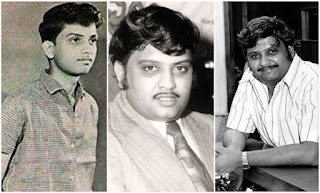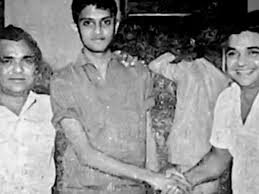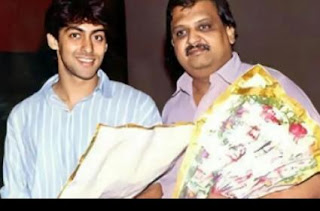PART 1 OF 10 - THE BIRTH OF A GOD
SP Balasubrahmanyam was born in Konetampet (present-day Tiruvallur district, Tamilnadu), a year before India’s independence, in an orthodox, Telugu brahmin family that hailed from Nellore in Andhra Pradesh. His father, SP Sambamurthy, was a Harikatha exponent and his mother, Sakunthalamma, looked after the bounteous family of three brothers and five sisters, that included SP Shailaja, who would go on to become a popular playback singer later in life.
A TWIST OF FATE
Growing up, in the early 60s, SPB had a typical Indian, sub-urban dream: to become an engineer, qualify to be a khaki-clad gazetted officer in his native Nellore, and ride around in an official Jeep eliciting salutes from his subordinates and the public. He was definitely artistically endowed. He sang and won prizes in music competitions, acted in school plays, and even formed a music band of his own, but had never taken his talents seriously.
He enrolled into Jawaharlal Nehru Technical University (JNTU), Anantapur to be an engineer. Unfortunately (and fortunately for his fans), he had to discontinue his studies as he contracted typhoid. He subsequently became an associate member of the Institute of Engineers (AMIE) - the poor man's engineering institute - in Madras (present-day Chennai), not willing to let go of his gazetted officer dream. This would prove to be the best move in his life.
A seed planted a few years ago by playback singer S Janaki, led SPB to be in the lookout for singing opportunities in Madras. These were the nineteen sixties. Till the early nineties, the four South Indian languages made all of their feature films out of the southern city. Madras churned out more processed film per capita than perhaps any other place in the world. Since Balu didn’t speak a word of Tamil or Kannada then, he must have sought out music directors especially in his native tongue. What songs did he sing for his auditions?
Yes! Rafi’s evergreen hits from ‘Dosti’ and ‘Kashmir ki Kali’ were what he sang to his prospective employers. So, what is the big deal? you may ask. Well, the southern film industry had a proud and rooted musical tradition that was as old as its Hindi counterpart. The Hindi composers of that time were widely admired in the South, but there were accomplished musicians in the South as well. Plus, Madras was the epicenter of the anti-Hindi agitation those days, and our guy unleashes 'Deewana hua paagal' on unsuspecting Tamil music directors and filmmakers. What? You still don't think it is a big deal? Just take my word for it. So, did the music composers consider it blasphemous? Did they give him dirty looks? I don't know. And I don't care. You could tar Hindi nameboards of railway stations and shops to send a message. But our man was undaunted by it all and sent his own subtle message out, singing Rafi's songs: one, that when it comes to music, it is its own language; and two, his love for Rafi surpassed all petty geo-political boundaries. (Impressed now?)
MEETING WITH THE GURU
During one of the competitions organized by the Madras Andhra Club, Balu met SP Kodandapani, who observing his singing talent, asked him if he was interested in singing for films. Mr Kodandapani was a reasonably accomplished music composer himself. Balu exchanged pleasantries and contact details and then forgot all about it.



Comments
Post a Comment